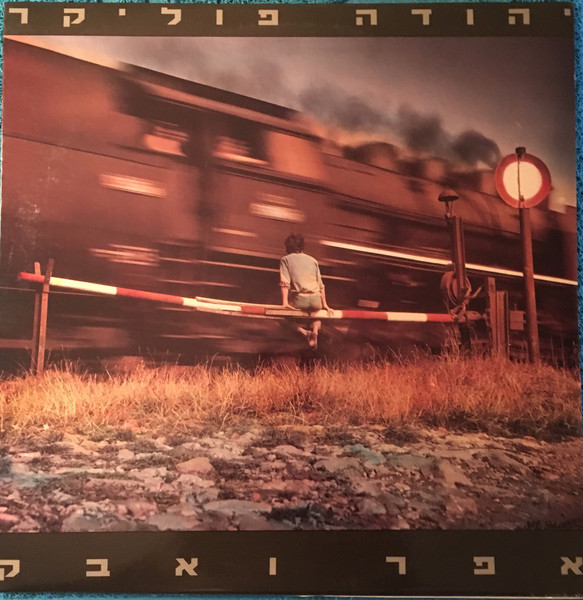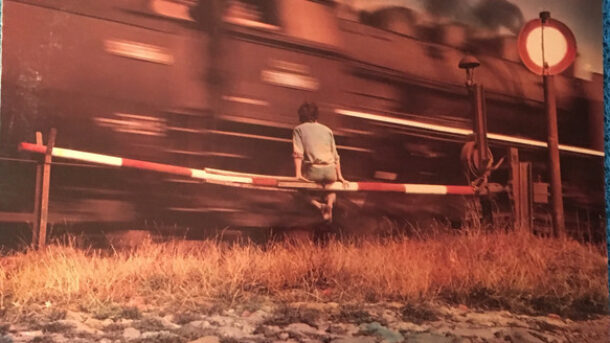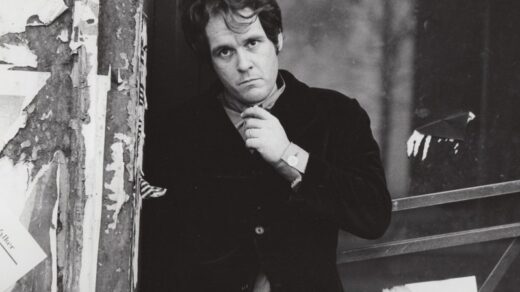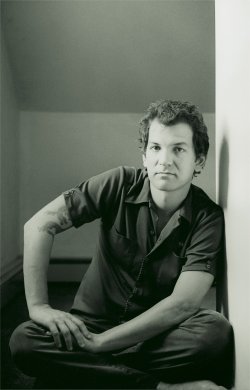Yehuda Poliker, ‘Ashes and Dust’
Yehuda Poliker, ‘Ashes and Dust’ (Full Album)

Jewish history is the tale of a Jews attempting to fit in but being rejected, persecuted, exiled and murdered. This is true in virtually every century and in every country where Jews have attempted to settle.
It’s a cruel truth, but the pattern never changes. Jewish immigrants arrive, they downplay their tribal history until their grandchildren have forgotten it. A generation or two or even three may succeed in deceiving themselves that they’ve fit in.
But the reminder will come.
In the Passover Hagada we read “בְּכָל דּוֹר וָדוֹר עוֹמְדִים עָלֵינוּ לְכַלּוֹתֵנוּ”. In every generation someone rises against us to obliterate us.
That was written 2000 years ago.
Reality Bath I—USA, 2023

Nobody likes to stick out. Jews fit in by assimilating, hiding or downplaying their Jewishness. Since WWII, intermarriage has increased and the percentage of Jewish-born humans identifying as Jews continually dwindles. Optimists talk about a ‘leaner but meaner’ tribe, fewer in numbers but more dedicated. Pessimists look at the numbers.
But then Bethany is happily minding her own co-ed business when she suddenly gets attacked on campus for being Jewish. But I’m just like you, she feels, insulted at being picked out for being different, and afraid.
Reminds you of Europe pre-WWII, no?
Reality Bath II—Soviet Union, 1990
I once asked a 16-year old refugee from the Soviet Union if she had been conscious of being Jewish. “It’s very cold where I come from,” she answered. “You wear a heavy coat and boots and gloves and a fur hat with earmuffs and a scarf wrapped around your neck and your mouth—but your nose always has to stick out.”
Reality Bath III—Israel, 2023
In WWII, 6 million Jews were murdered because they had nowhere to run.
In 1948, we won the war because we had no choice.
In 1967, we won the war because we had no choice.
In 1973, we suffered great losses due to our national hubris, but we won the war because we had no choice.
In 2023, we suffered a horrifying pogrom due to our national complacency. We will win the war militarily, because we have no choice. We’ll win some degree of peace and quiet on the battlefield, at the regrettable cost of life among the innocent civilians behind whom Hamas hides. We’ll have some period of relative peace.

But we in Israel will never forget the trauma of the pogrom wrought upon us. The pictures will haunt us till our dying day.
Reality Bath IV—Israel, 1985
Immigrants to Israel have traditionally tried to conform to the iconic image of the warrior Sabra, less to avoid sticking out (we’re a nation of immigrants) than to become a real Israeli. Parents chatter in many languages at the IDF graduation ceremony of their Sabra son or daughter, all bursting with Hebrew pride.
This ethos of becoming a Real Israeli took hold following the establishment of Israel in 1948. 650,000 Israelis faced the task of absorbing 750,000 immigrants, over half of them Holocaust survivors. The Israelis had just defeated overwhelmingly larger Arab armies by being tough, and they were proud of it. They arrogantly disdained Holocaust survivors as ‘sheep led to slaughter’. The survivors’ children, the same age as America’s Boomers, wanted desperately to fit in. Many took Hebrew family names.

By the mid-‘80s, Yehuda Poliker (b. 1950) and Yaakov Gilad (b 1951) had more than fit in. They were sitting on top of the world, bona fide Rock Stars—Poliker the leader of the band Benzine, Gilad an A-list producer/lyricist/collaborator. Living the life.
One day they happened to be talking about their backgrounds. Turns out Gilad’s parents were each sole survivors from their families. Turns out Poliker’s parents were also sole survivors from their families. Gilad’s (Birnbaum) were from Eastern Europe, like millions of victims. The Polikers (Polikaris) were among the mere 50,000 in the ancient Thessaloniki (Greek) Jewish community.
All were murdered in Auschwitz.

Gilad and Poliker found a deep common language, both raised by Auschwitz-traumatized parents. ‘Every scarred family is scarred in its own way’, but the impact of their parents’ lives on their sense of identity was strong enough to generate a collaboration album of Holocaust-oriented songs in their own contemporary voices. “Ashes and Dust” became a cultural landmark, Sabra children of survivors confronting for the first time their second-generation legacies of Auschwitz.
Poliker and Gilad were living the life when the reality of who they really were came and slapped them in the face, forcing/inspirinspiring them to deal with the Holocaust on their own personalized terms. Just like Bethany was slapped in the face by the reality of her classmates’ latent, ineradicable anti-Semitism.
Ashes and Dust
The title of Poliker and Gilad’s album needs some illumination, due to the imprecision of the language in the burial service in the Anglican Book of Common Prayer: ‘We therefore commit this body to the ground, earth to earth, ashes to ashes, dust to dust…”
Buried bodies decompose to dust, not to ashes. Dust to dust is the way of the world. You get ashes when you burn Jewish bodies. Like in Auschwitz or Treblinka. Like in Kibbutz Kfar Aza or Sderot.
The first verse and the refrain of the title song are Yaakov Gilad objecting to his mother’s decision to visit Warsaw, where at 14, she was interred in the infamous ghetto before being transported to Auschwitz. The Old Country holds nothing but the ashes of Jewish bodies intermingled with the dust of eternity, he tells her.
In the second verse, Gilad presents what his mother’s mother told her child as she prepared her for the transport train. Take a coat, take pocket money, take a cube of sugar, she says. But we know the destiny of the Jews in that cattle car—ashes mixed with dust.
What we remember most strongly is Poliker’s wrenching, plaintive vocal, music evoking the Old Country (bouzouki and accordion) and the insistent refrain—‘Where are you going? What do you think you’ll find there? Nothing but ashes and dust.’
The Logical Conclusion
Poliker did his army service in the Entertainment Corps, like many if not most leading Israeli musicians. In later years he expressed great regret that he hadn’t served in a combat unit.
Why was “Ashes and Dust” such a cultural icon? Because Poliker and Gilad understood that the precariousness of Jewish existence can’t be ignored or assimilated away. As much as we Jews, both in Israel and in the Diaspora, want to think that we’re just like everyone else—we’re not.
Throughout history, wherever the Jew has wandered, he has been persecuted, his blood a cause for celebration. Israel is the only safe place for a Jew. But it will only be safe if we remember our history and maintain our independent strength, our vigilance, and our resolve.
That we shall do, because we have no choice.
Am Yisrael Chai.
A spring day, the scent of lilach
In the ruins of your city.
A lovely day to fish in the river
Within me my heart breaks
There it was, now gone,
Your childhood, little woman
People you don’t know
Not even a house to remind you.
And if you go, where will you go?
Eternity is only ashes and dust.
Where are you going? Where are you going?
Years, and nothing erased.
Take a coat, you’ll be cold
Pocket money, a cube of sugar
If the days get hard
Think of me sometimes
And if it’s another desparate trip
To the platform, to the yard
On the old town line
Nobody will be waiting in the station.
And if you go…
Who will sweeten your nights?
Who will hear you crying?
Who will take care of you on your way?
Where are you going? Where are you going?
Eternity is only ashes and dust.
Where are you going? Where are you going?
Years, and nothing erased.
Take a coat, you’ll be cold.





To me, Yehuda Poliker is like the Simon and Garfunkel of Israel. Most of the time, listening to him makes me want to slit my wrists. But his style and content ring true.
Heartbreaking and healing too, the power of music. Thank you for sharing .
Makes you cry. Makes you see. Thank you, Jeff!